By KATIE EUBANKS
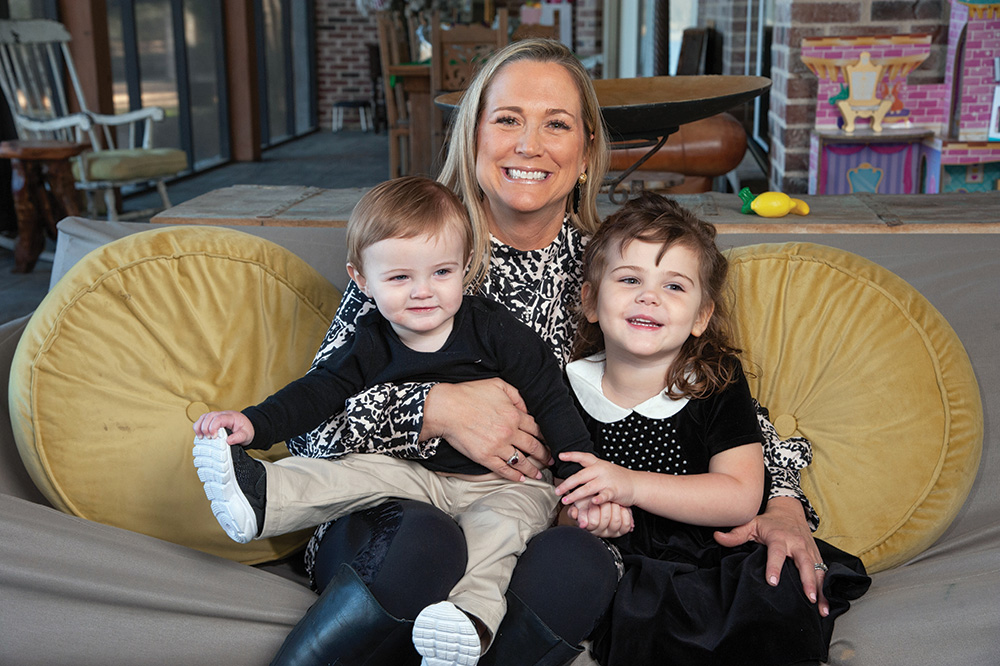
Alyssa with her children (from left) Keath Jr. and Vivian. “They look and act just like their daddy, so they will challenge me every day I’m sure.”
From September 2020 to December 2021, Ridgeland psychologist Dr. Alyssa Killebrew lost her best friend, her unborn daughter, and her husband. While still grieving, she is celebrating new life — her son Keath Jr. was born less than a month after his father passed — and helping others via SEK Christian Therapeutic Intensives, a weeklong summer camp for adolescents that she and Keath Sr. started in 2021.
MCL Editor Katie Eubanks recently spoke with Alyssa and her niece, SEK camp director Sarah Sellers, about their own mental and spiritual journeys, and about how they hope SEK will help teens. The interview has been edited for space and clarity.
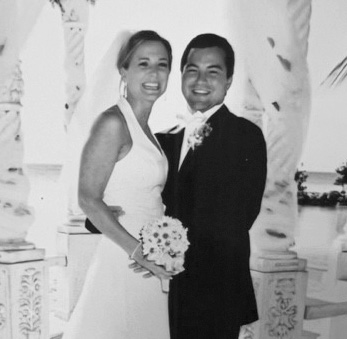
Alyssa and Keath got married in Jamaica in 2003.
Katie Eubanks: Alyssa, how did you and Keath come to establish SEK?
Alyssa Killebrew: We created SEK after we lost our second daughter to COVID. When I was pregnant in 2020, a blood clot formed on my placenta after I contracted the virus. The baby did not survive. That was a couple of months after I’d lost my best friend. We named our daughter Sara Elizabeth in honor of my friend and my grandmother.
Keath and I attended a grief retreat. We came home wanting to extend what we had learned there. (Then WLBT news anchor) Maggie Wade called me (to interview me). I told her about this small seed (of an idea for the camp). Then Keath jumped on, and my friend Christy and (her husband) Chip encouraged us to do it as well.
We had our first SEK camp in 2021. SEK stands for our daughter Sara Elizabeth Killebrew, but it’s pronounced “seek,” as in “seek and you will find” (Matthew 7:7).
I think the most important lesson (I learned from the first SEK camp) was just that I don’t really believe people can heal fully without learning and believing in Jesus. I don’t. That has been a big pivotal point for me.
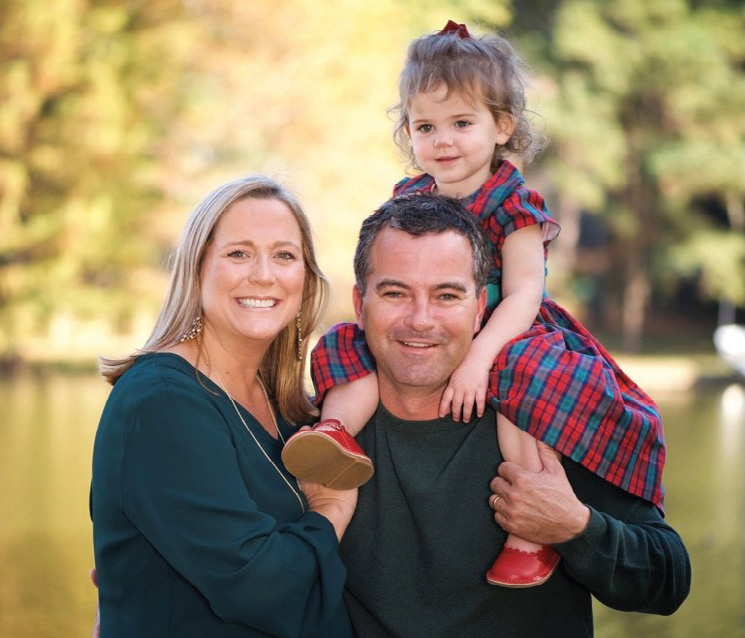
Alyssa and Keath with Vivian.
KE: Tell me about Keath’s accident later in 2021.
AK: Keath had traveled to Paraguay to meet with government leaders about teaching people how to farm in the Chaco region, this very fertile part of Paraguay that has no cotton farming. He died in a plane crash.
I initially was stuck on, “Why?” But I have had to change my “why” to “how.” God, how can I go on and live a good and pleasing life to You without my soulmate? I am discovering day by day that the “how” is much easier to understand when I lean on (Jesus).
We took a break from SEK last year, but I had to have Christy pull me back, because I was going full speed. I needed time to put a team together. I lost 15 strong men when I lost Keath.
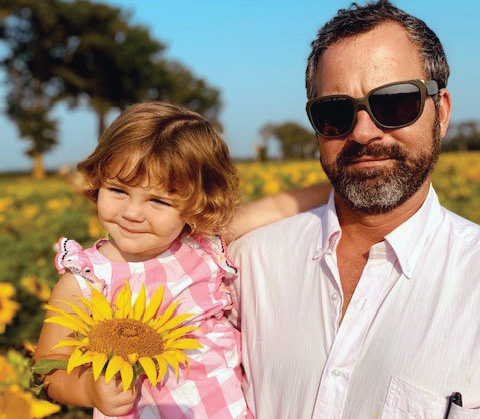
Keath Sr. with Vivian.
KE: Sarah, you’re the camp director for SEK. Tell me why you can relate to the kids who’ll be coming to this camp.
Sarah Sellers: I have struggled with mental health since I was very young. I come from a very good family. (But) I had a hard time fitting in. I had a hard time loving myself.
My first addiction started when I was 12, and it was cutting. (Eventually) I was drinking and using drugs daily. I had an eating disorder. I was still self-harming. I had no trust for my parents. I felt like I couldn’t breathe.
I wasn’t looking for a spiritual solution at 17. I wasn’t committed to stopping what I was doing. But I needed a break. I went to an inpatient treatment, New Beginnings in Opelousas, Louisiana.
I’ll never forget this girl (at treatment who) had a similar story to me. She had stopped drinking and doing drugs, and she was internally happy. I thought about her for the next few months. I thought, if she can be OK, I can too.
While I was (in treatment), I kept getting these Easter eggs from people. (But) nobody tried to shove God down my throat. I just realized, I can start searching for a greater purpose. It’s not been easy since. (But) I’m five years into recovery (and) it’s better than I ever thought it could be.
I only recently found Christ. (When I was first searching for a higher power, I thought) maybe a plant is a greater power. … I don’t understand the ecosystem very well, so that’s a very powerful idea … And then it became agriculture, the universe, the universe and its people … (But eventually), I found Jesus.
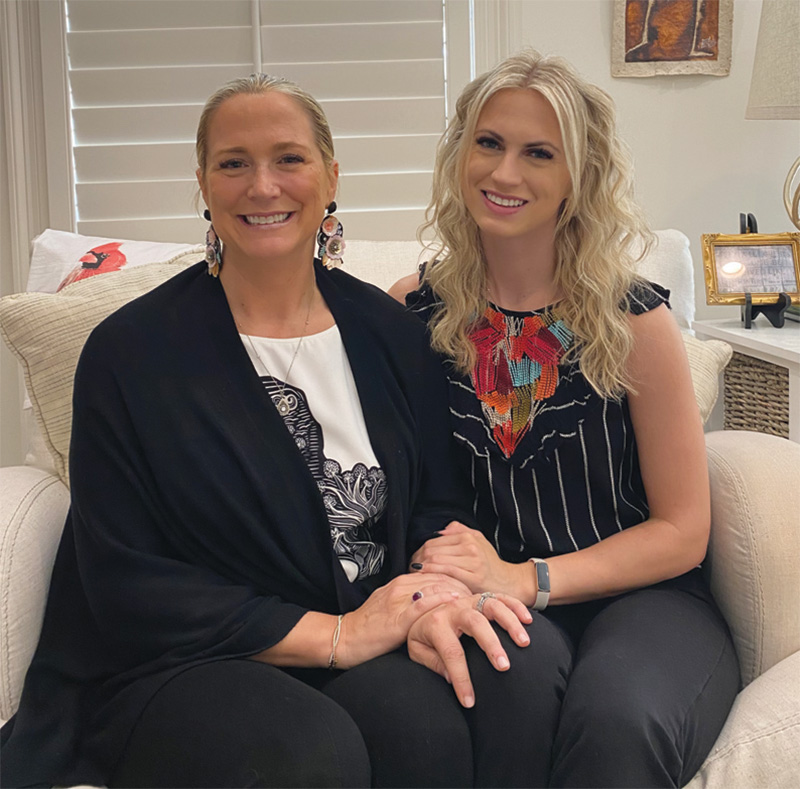
Alyssa and Sarah at Alyssa’s office.
KE: How did you respond when you found out about SEK?
SS: I jumped (into the camp). I was scheduled to do a lot of other things that week, but after the first day, I canceled it all.
It’s powerful to be dealing with mental health issues at 13, 15. I want to see the light come on for (the campers). My light (at first) was maybe, don’t punch your brother.
We’re not claiming this as a one-stop shop. (But we hope they’ll be) able to walk away and see, here’s my path. This is what I respond to, this is what I don’t.
AK: I think that we target young people, and we help them deal with their traumas at a young age, and maybe they don’t need mental health services later.
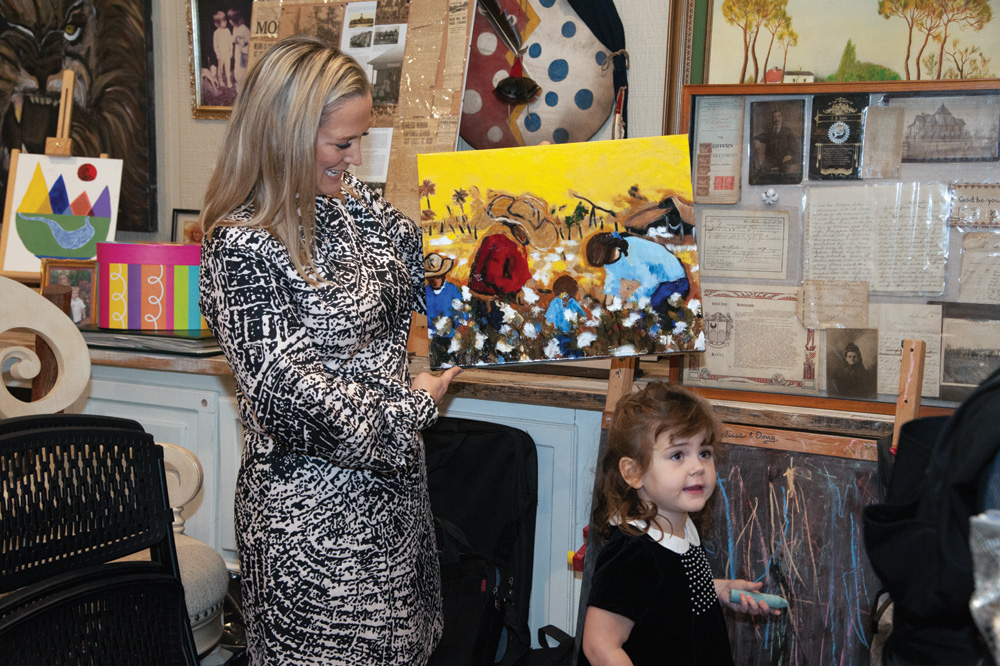
A room full of art and other mementos, including a scene Alyssa painted based on a photo Keath took.
KE: Alyssa, tell me more about the mental health part of the SEK camp.
AK: You get 16 hours of therapy while you’re there. There will be licensed professional counselors who will be running the group therapy four times a day. And we’re going to group them according to their ages and genders. Thirteen- to 15-year-old females will be in a group, 15- to 17-year-old males…
For other volunteers, I have come up with a “Mental Health 101” workshop. And we went out to Tanglewood and did a training on that. I’m not asking (volunteers) who have no license to practice psychology, to be practicing psychology. But there are a lot of people who are in school (for psychology who will be helping in other ways).
One of the things we’re going to do is dialectical behavioral therapy, or DBT, which means learning how to hold the tension of two opposite states at the same time without getting polarized on one end. We can love and be angry at a person at the same time.
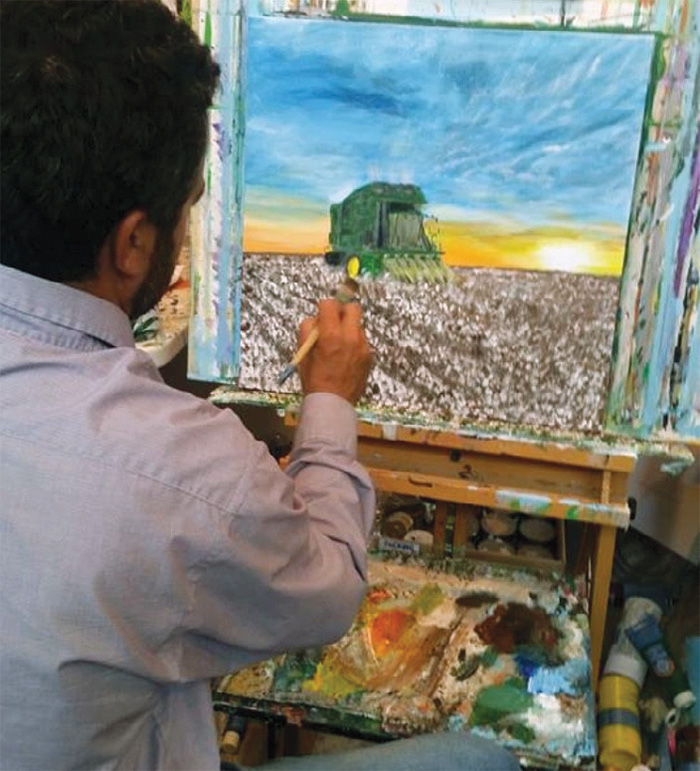
Keath was a talented artist.
KE: What are some of the other activities at SEK?
AK: We’ll do a morning devotion and give the participant an opportunity to think about what’s being offered. And they can talk about that. We have a volunteer who is a minister who is going to be teaching the biblical lessons. People in my faith family are really coming around to support me.
We’re going to be using the life of Jesus and how He suffered to teach about how to suffer well.
And then I envision we’ll do a yoga class, which is really just gentle stretching and getting into your body and being present, paying attention to what’s going on inside your body.
We’ll also have an art class, because art just heals. One way we know when patients are getting better is when they get creative and they’re able to get out of their head.
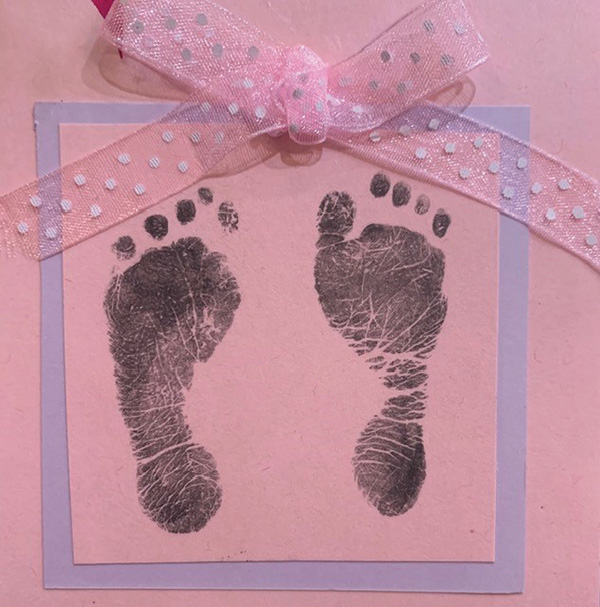
Sara Elizabeth Killebrew’s tiny footprints.
KE: How can a parent know if SEK is right for their child?
AK: This is the child who’s gone through a divorce, they’ve lost a parent, they’re struggling with anxiety, they have depression. (It’s) trauma, but not PTSD. I’ll know the difference. I’ll do evaluations with each family. And we plan to treat them up to six months after the camp.
This is not going to be your child who’s recently been diagnosed with acute schizophrenia or an uncontrolled mood disorder. They need a higher level of care.
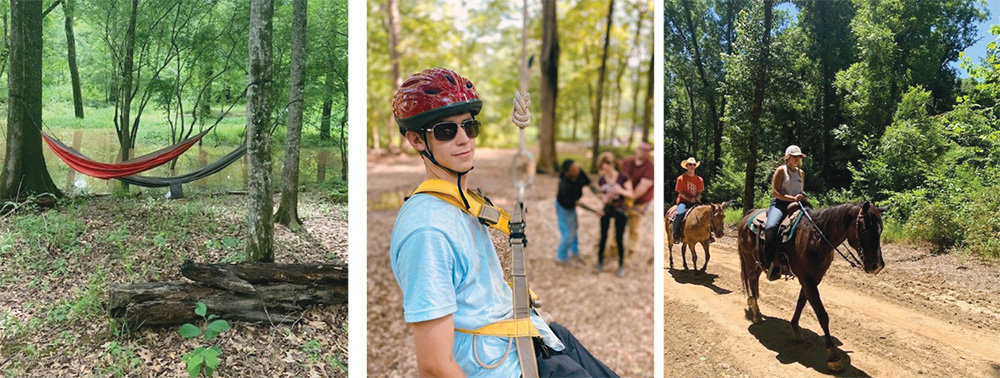
SEK will include plenty of outdoor activities for campers.
KE: Is the camp open to non-Christian families?
AK: It would actually be great if someone who’s a nonbeliever came, and we were able to introduce them to who Jesus is. We are going to be teaching Christianity. (But) we are open to any child who is suffering.
We’re going to start really small. Forty-eight children ages 13 to 17.
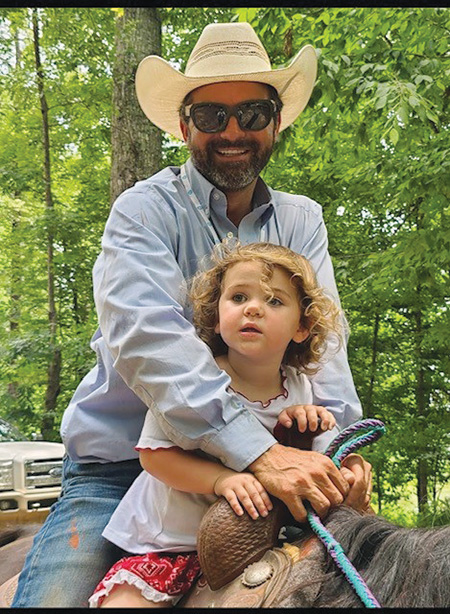
Alyssa Killebrew is turning her pain into purpose by continuing the Christian therapeutic camp for teens that she and her late husband, Keath (here with daughter, Vivian, started in 2021.
KE: What else do parents need to know about SEK?
AK: For the beginning of the camp, I’ve already created a video for the parents. I preface by saying, “I’m a flawed parent. I don’t even begin to know what you’ve been through as a parent of a teenager. But here’s what I’ve learned clinically.” I know your kids need you to admit when you’re wrong. I give parents homework to do during the week while their child is (at SEK).
Another thing I want parents to know is, there will be round-the-clock prayer happening for the staff, the kids and the parents during the camp.
Then the last day is a family day. I don’t want to give it away, but we have a really special ceremony for the parents that we did (in 2021). There were some children that didn’t have a parent there, so we chose someone who could be a surrogate parent.
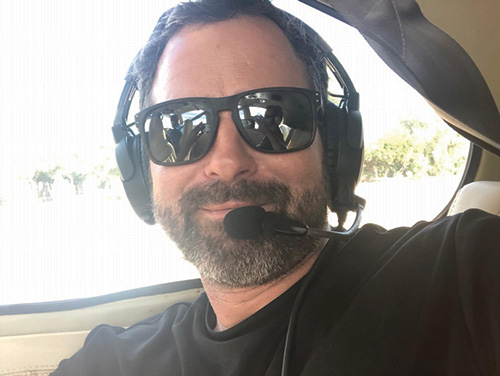
KE: Sarah, as someone who struggled at a young age and is on the other side, how would you encourage parents of teens who are struggling?
SS: One day they will be thanked by their child. … If they feel in their heart (that a certain person or program) would help, it’s important to try everything. I thank my mother every day for putting me in a camp.
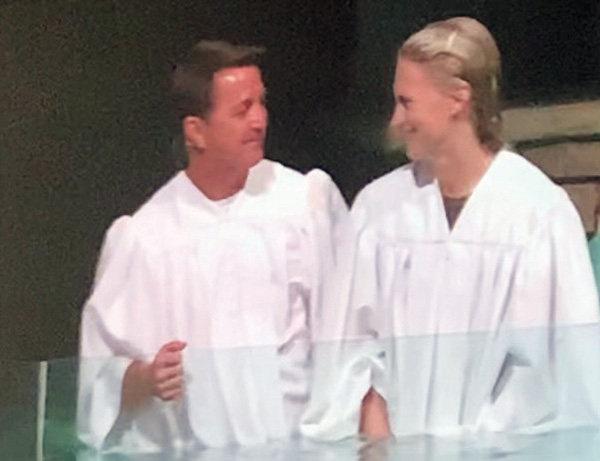
SEK camp director Sarah Sellers, Alyssa’s niece, was recently baptized at Pinelake Church.
KE: Looking back over the last three years, Alyssa, what is the biggest thing you feel God has taught you?
AK: I have not had a day where I didn’t want to be here, where I just didn’t want to live because my soulmate was gone. But it’s because I have a foundation and a strong rocket of a faith and knowledge that I am saved and that Jesus is — He is just in my heart. And I just know that He is going to walk me through this.
That’s something that’s really important for me to say out loud. That is what I’ve learned, is that I need to say that more.

